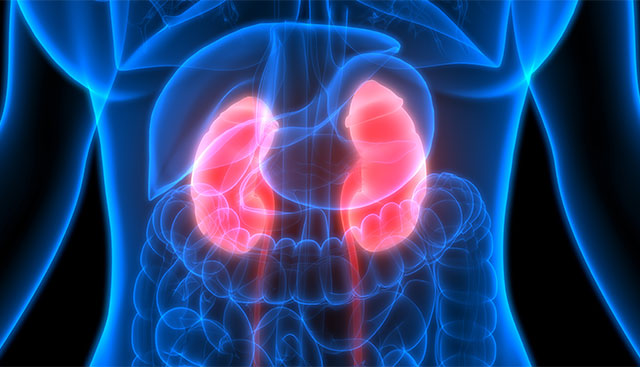
Moffitt Study Seeks to Inform Improved Treatment Strategies for Clear Cell Renal Cell Carcinoma
Clear cell renal cell carcinoma is the most common form of renal cell carcinoma, a type of kidney cancer, accounting for about 80% of all renal cell carcinoma cases.
To better understand how the tumor immune microenvironment (TIME) in metastatic clear cell renal cell carcinoma (ccRCC) may help inform precision treatment strategies, Moffitt Cancer Center researchers launched a study to identify clinical meaningful TIME signatures in ccRCC.
The Moffitt team studied tumors from 39 patients with metastatic ccRCC using quantitative multiplexed immunofluorescence and relevant immune marker panels. Cell densities were analyzed in three regions, including tumor core, tumor-stroma interface and stroma.
“This project leverage some of the latest technology in immunofluorescence to study immune cells in ccRCC and try to identify how these cells may impact patient or treatment outcomes,” said Brandon Manley, MD, Department of Genitourinary Oncology.
The study’s results showed increased macrophage markers and decreased T helper-cell markers within the TIME correlated with poor overall survival and treatment outcomes. They also found that some immune cells such as FOXP3, showed consistent levels across the TIME, whereas others such as T-bet, demonstrated significant variance across the different regions of the tumor.
These findings suggest that TIME profiling in this manner may identify clinically relevant associations for patients with metastatic ccRCC. Through funding from the Department of Defense, Moffitt is currently looking at a much larger population of ccRCC to validate there findings and bring them closer to impacting how we care of ccRCC patients.
The multidisciplinary team in Moffitt Cancer Center's Genitourinary Oncology Program is at the forefront of research and new treatment of genitourinary cancers. We’re on the leading edge of cancer research and work to have a positive impact on the lives of cancer patients.
To learn more about the Genitourinary Oncology Program or to refer a patient, call 1-888-663-3488, complete our online form or contact a physician liaison for support.
